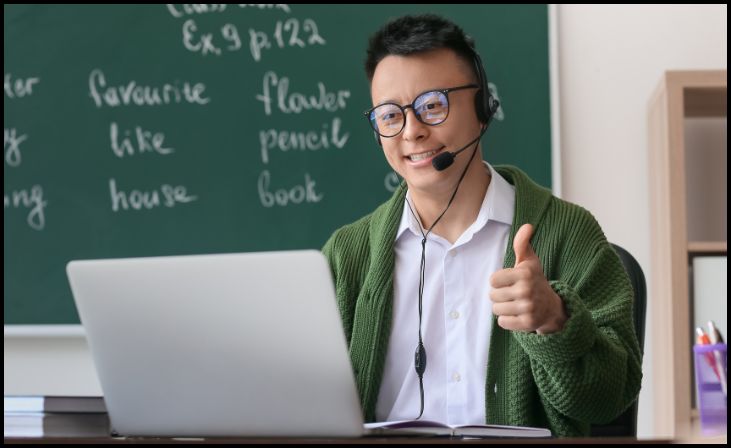In the rapidly evolving landscape of education, teachers must continually hone their skills to meet the demands of modern classrooms. Professional development is crucial for educators to stay abreast of new teaching methodologies, technologies, and student needs. This blog explores 12 essential Professional Development Skills that modern teachers should cultivate to enhance their effectiveness in the classroom. From technology integration to cultural competence, these skills are key to creating engaging and inclusive learning environments. Whether you’re a new teacher looking to build a strong foundation or a seasoned educator seeking to stay current, mastering these skills will benefit both you and your students.
12 Professional Development Skills For Modern Teachers
1. Technology Integration

In modern education, technology plays a crucial role in enhancing the learning experience. Teachers need to be proficient in using various technological tools and platforms to deliver engaging lessons and facilitate interactive learning. This includes using educational apps, online resources, and multimedia presentations to supplement traditional teaching methods. Technology integration also involves fostering digital literacy among students and teaching them how to use technology responsibly and effectively.
Also Read:- Personalized Learning Strategies
2. Cultural Competence
Cultural competence is essential for teachers to create inclusive and welcoming classrooms for students from diverse backgrounds. It involves understanding and respecting different cultural norms, beliefs, and practices, and incorporating them into the curriculum. Teachers with cultural competence can effectively engage with students and their families, build strong relationships, and promote a sense of belonging and acceptance in the classroom.
3. Data Analysis
Data analysis skills are crucial for teachers to assess student performance, identify areas for improvement, and tailor instruction to meet individual learning needs. Teachers need to be able to collect, analyze, and interpret data from assessments and other sources to make informed decisions about instructional strategies and interventions. Data analysis also helps teachers track student progress over time and measure the effectiveness of their teaching methods.
4. Collaborative Learning
Collaborative learning encourages students to work together to achieve common goals and solve problems. Teachers need to facilitate collaborative activities that promote communication, teamwork, and critical thinking skills. By fostering a collaborative learning environment, teachers can help students develop important social and emotional skills, such as empathy, cooperation, and conflict resolution, which are essential for success in the 21st century.
5. Adaptability
In today’s rapidly changing educational landscape, teachers need to be adaptable and flexible in their approach to teaching. They should be willing to try new strategies, technologies, and teaching methods to meet the evolving needs of their students. Being adaptable also means being open to feedback and willing to make adjustments to improve teaching practices and student outcomes.
6. Problem-Solving

Effective teachers are skilled problem solvers who can identify challenges and find creative solutions to address them. They should be able to anticipate potential problems, think critically about possible solutions, and implement strategies to overcome obstacles. By developing strong problem-solving skills, teachers can create a more dynamic and engaging learning environment for their students.
7. Communication
Communication skills are essential for teachers to effectively convey information and ideas to students, parents, and colleagues. Teachers need to be clear, concise, and engaging communicators who can adapt their communication style to meet the needs of their audience. Effective communication also involves active listening, empathy, and the ability to build positive relationships with students and stakeholders.
8. Classroom Management
Classroom management is the foundation of effective teaching and learning. Teachers need to establish clear expectations, routines, and procedures to create a safe and productive learning environment. They should also be able to manage student behavior effectively, address conflicts and disruptions, and create a positive and inclusive classroom culture where all students feel valued and respected.
9. Professional Growth
Professional growth is a lifelong process for teachers to continuously improve their skills and knowledge. Teachers should seek out opportunities for professional development, such as workshops, conferences, and online courses, to stay current with best practices in education. Professional growth also involves reflecting on teaching practices, seeking feedback from peers and mentors, and setting goals for personal and professional development.
10. Emotional Intelligence
Emotional intelligence is the ability to understand and manage emotions, both in oneself and others. Teachers with high emotional intelligence can empathize with their students, build positive relationships, and create a supportive and nurturing learning environment. Emotional intelligence also helps teachers manage stress, resolve conflicts, and handle challenging situations with composure and empathy.
11. Critical Thinking
Critical thinking skills are essential for teachers to encourage students to think critically, analyze information, and make informed decisions. Teachers should model critical thinking in their own teaching practice by asking probing questions, encouraging students to explore different perspectives, and challenging them to think deeply about complex issues. By developing critical thinking skills, teachers can help students become independent learners and problem solvers.
12. Leadership

Leadership skills are important for teachers to inspire and motivate their students to achieve their full potential. Teachers should lead by example, demonstrating professionalism, integrity, and a commitment to lifelong learning. They should also be able to collaborate with colleagues, parents, and stakeholders to improve educational outcomes and advocate for positive change in the education system. Leadership skills also involve fostering a shared vision for the school community and empowering others to contribute to its realization.
Also Read:- Benefits Of Professional Learning Communities
Conclusion
In conclusion, professional development is not just a requirement for teachers; it’s a vital tool for enhancing teaching effectiveness and student learning outcomes. By investing in continuous learning and development, educators can adapt to the changing needs of their students and create more engaging and inclusive classrooms. The 12 skills discussed in this blog provide a roadmap for modern teachers to thrive in today’s educational landscape. As you embark on your professional development journey, remember that learning is a lifelong process, and each skill you acquire will make you a more effective and impactful teacher.
FAQs
Why are professional development skills important for teachers?
Professional development skills are important for teachers because they help educators stay current with new teaching methodologies, technologies, and student needs. These skills enable teachers to create engaging and inclusive learning environments, leading to improved student achievement.
What are professional development skills for teachers?
Professional development skills for teachers are abilities and competencies that educators develop to enhance their teaching practice and student outcomes. These skills include technology integration, cultural competence, data analysis, and collaborative learning, among others.


Leave a Reply